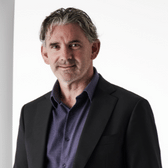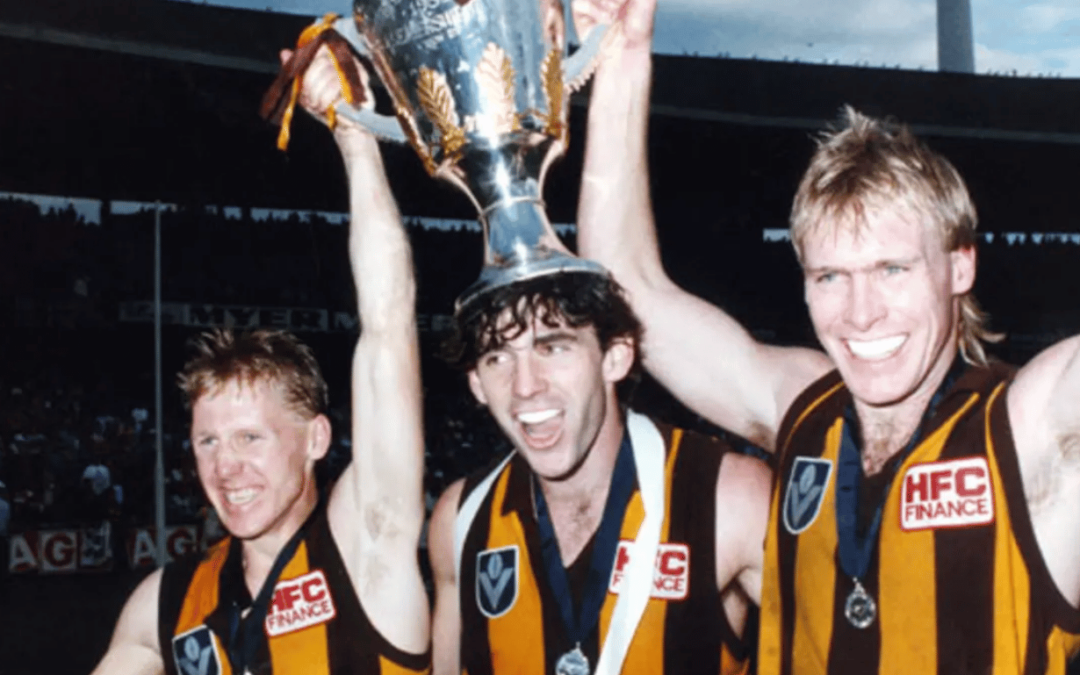We all have defining years in our lives. At the extremes, we can experience a great year – annus mirabilis (a year of extremely good events) or a torrid year – annus horribilis (a horrible year). Self-reflection and learning from defining years can be a powerful tool for application to one’s personal development and in our journey to becoming High Performing Leaders.
Personally, 1989 was my annus mirabilis. Indeed, it was also a big year globally, with the fall of the Berlin Wall and the birth of Taylor Swift. In 1989, I was selected in the Hawthorn AFL Premiership Team that played in one of the more iconic Grand Finals. To this day, the magnitude of that game leaves me incredulous. Hawthorn was a high-performing team underpinned not only by a raft of star players but an envied culture forged from strong relationships built on mutual trust and respect. The team had a feel for behaviours that provided the foundation for success, and indeed, these behaviours did contribute to the ultimate success. The behaviours included but were not limited to; a commitment to high training standards, extra training sessions away from the club as well as learning to play a tough and uncompromising brand of football. Feedback was also integral to the success culture where, at times, you received it in abundance from senior players and coaches, yet other times, you received nothing and were left to work it out yourself. We worked on personal relationships but tended to gravitate to our mates. Relative to the time, the culture was strong.
Upon reflection, whilst the culture was universally applauded, not everything was the perfect tonic for high performance. Player empowerment was limited, and we simply turned up to training like robots, dutifully performing what was asked of us. There was no sophisticated leadership development program; our leaders were selected based on age and ability, with the oldest and the best usually anointed. Critically, celebrating success at times got out of control, rewarding behaviours counterproductive to high performance. Poor off-field behaviour, often involving alcohol, poor diet, and sleep deprivation, was hailed but was not a great standard to set. A sense of belonging could be crafted through those who complied, providing an option for young kids to “play up” and leaving those who opted not to participate at risk of feeling ostracised. Counterproductive third-party conversations were also typical in football clubs and always had the potential to be dangerous. Blame and excuses were, at times, allowed to fester. Indeed, this can be a cultural performance barrier relevant to any organisation.
Fast forward to my current role as CEO at Leading Teams, where I have been afforded a life-changing opportunity to commit to becoming a high-performing leader. Immediately, I was exposed to leadership and culture experts who employ powerful tools with the purpose of helping individuals and teams achieve high performance. What resonated very quickly was that whilst strong relationships were fundamental in driving success (as they did in 1989), there are other components that drive culture to a higher level. Strong cultures require a behavioural framework that is agreed to by all team members and not just dictated by a chosen few. The behavioural framework spells out what the team is striving for and provides the reference point for actions to be reviewed, commitments to be made and performance shifts to occur. Great teams will then feel empowered to engage in genuine conversations that provide feedback for individuals on how they can be better. It is the agreed behaviours that help drive genuine conversations and build the relationships that lead to a high-performing team. My exposure to this model at Leading Teams often allows me to reflect on the days gone by and appreciate how far we have come in our knowledge and understanding of driving high performance. I am grateful for the experiences and learnings along the way and look forward to continuing to improve my own leadership skills and those around me to create a culture of high-performing teams. May 2024 be your year of high performance and your own annus mirabilis.

Dean is the CEO of Leading Teams joining the business in 2022 after a career in banking and finance and as an AFL premiership player.
Learn more about Dean.




